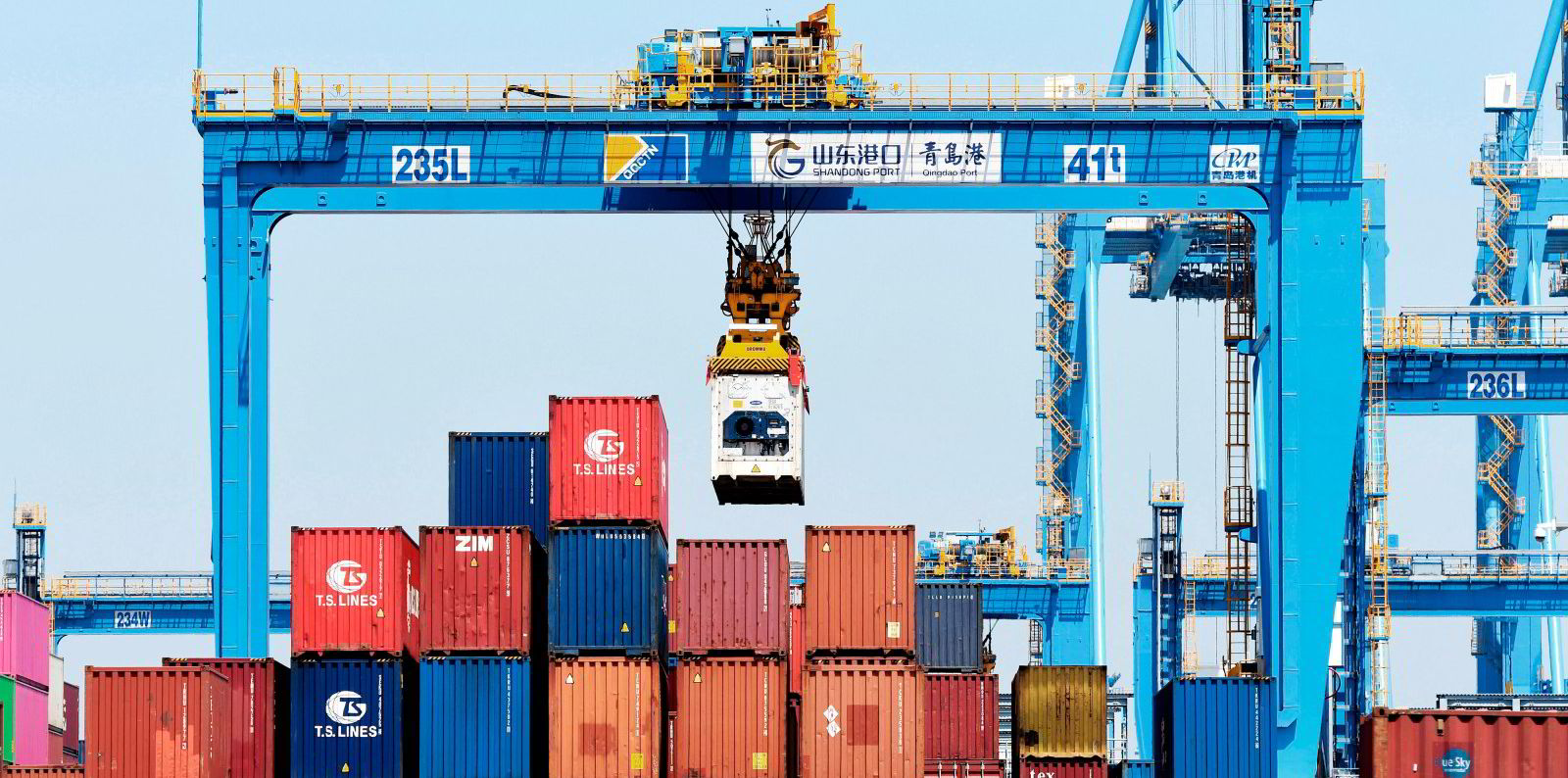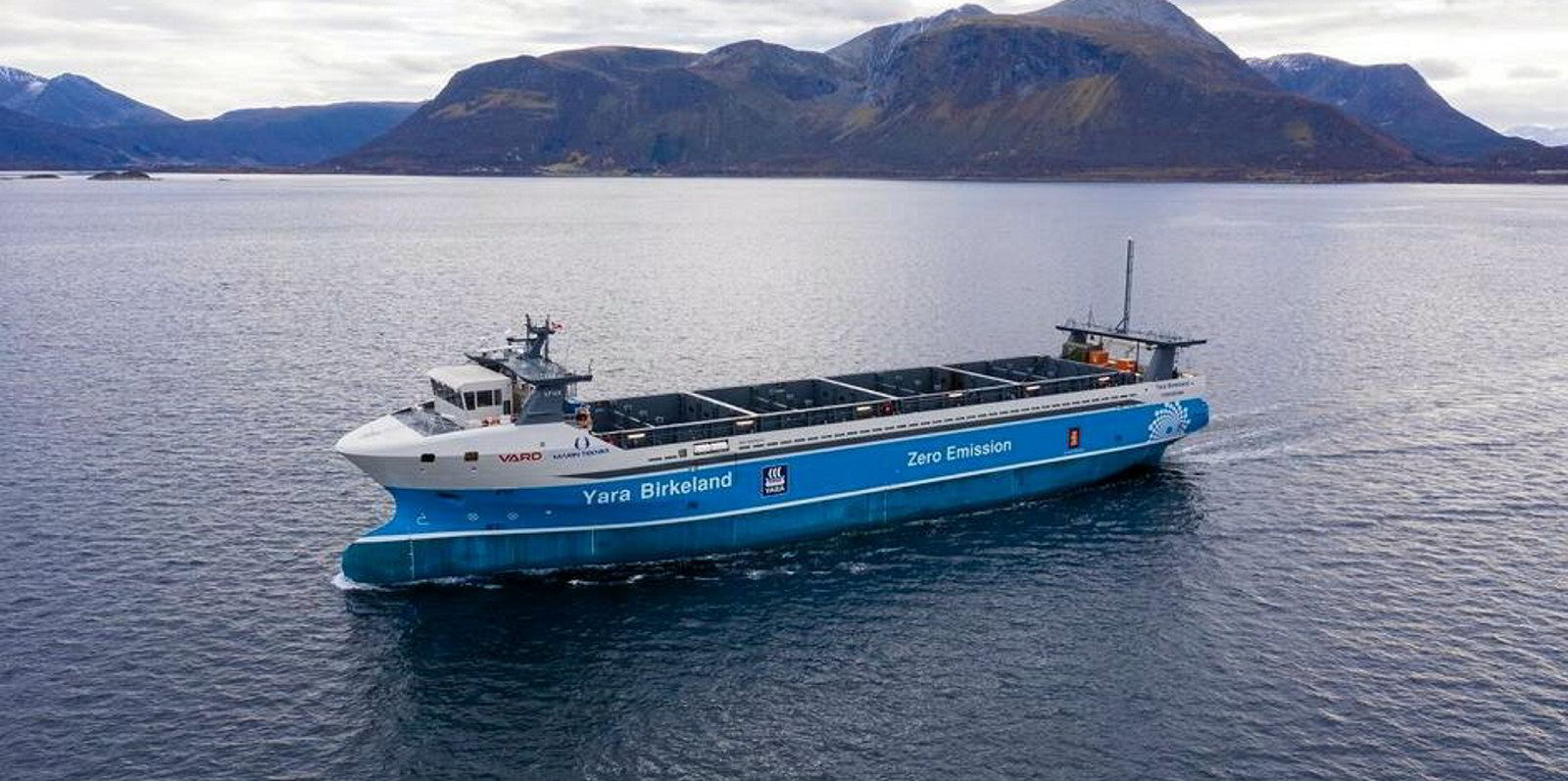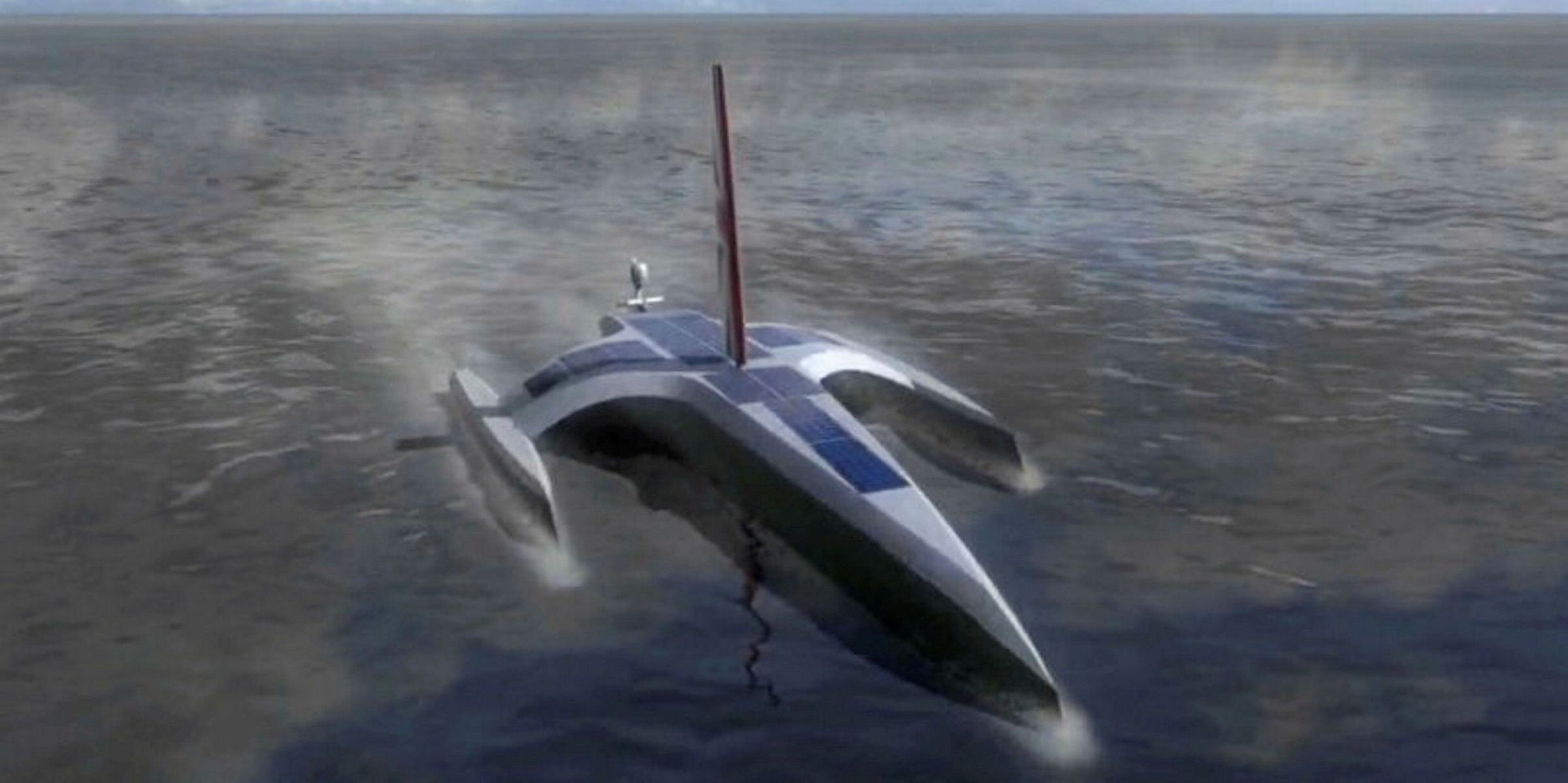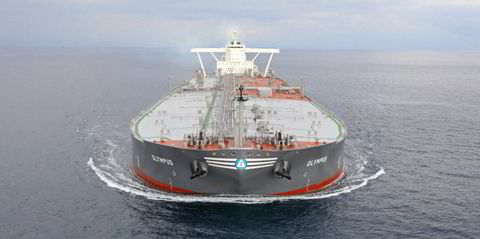China's Brilliant Navigation (Brinav) looks to have won the battle to launch the world's first autonomous cargo vessel.
The experimental 300-teu feeder containership Zhi Fei is now ready at the domestic Qingdao Yangfan Shipbuilding yard and will join a shuttle a shuttle service between the main hub of Qingdao and the smaller port of Dongjiakou in October.
Brinav will manage the ship for Shandong Port Shipping Group (SPSG).
Consultancy Alphaliner said the Zhi Fei will operate with a crew that is monitoring its passage, while intelligent computer systems will progressively take over more and more of the navigation tasks.
The containership comes with a conventional bridge and crew accommodation, allowing the seafarers to take corrective action if necessary, until the systems have matured enough to let the vessels run in full autonomous mode, the consultancy added.
The 117-metre-long hybrid electric vessel has a top speed of 12 knots.
"The new service is meant to be a commercial operation, but much more than this, it is first and foremost a demonstrator and proof of concept for the deployment of crewless containerships that are piloted by a computer system," said Alphaliner.
Two years in the making
Qingdao-based Brinav ordered the ship in late 2019.
Construction began in mid-2020 and the vessel was completed in June this year.
The Zhi Fei has undergone sea trials and extensive debugging at a test site in coastal waters near Qingdao.
Brinav teamed up with technology partners Shanghai Bestway Marine, SDARI, Dalian Maritime University and the China Waterborne Transport Research Institute.
They will evaluate performance in everyday operations before deciding if and how to scale the concept up to ships of between 500 teu and 800 teu.
Brinav looks to have beaten Norwegian rival Yara International in the race to have the first autonomous ship in operation.
The ammonia producer and LPG carrier owner's delayed Yara Birkeland cargoship is set to begin operation towards the end of this year.
The 120-teu, 3,200-dwt vessel has been built at Norwegian shipyard Vard Brattvag, after pandemic-related delays.
Yara and technology company Kongsberg teamed up in 2017 to develop the ship.
The plan is to have zero emissions using battery power.






